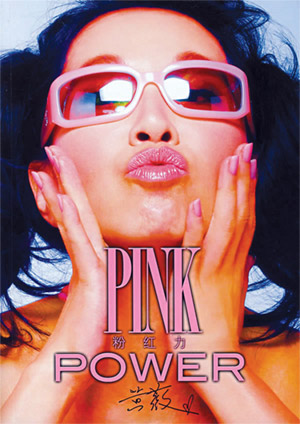幾年前,當(dāng)70后大罵80后是浪費(fèi)、自私一代的時(shí)候,80后標(biāo)榜自己是“紅色一代”。這些年,隨著90后逐步成長(zhǎng),社會(huì)上對(duì)90后自我為中心、缺乏責(zé)任感等評(píng)價(jià)又催生出了“粉紅力”這個(gè)說(shuō)法。粉紅色也是紅色的一種,只不過(guò) 顏色沒(méi)有那么深而已。那么這個(gè)“粉紅力”究竟代表什么呢?
顏色沒(méi)有那么深而已。那么這個(gè)“粉紅力”究竟代表什么呢?
The term "Pink Power" was born in a fierce online debate among netizens from the post-1970s, post-1980s and post-1990s generations.
“粉紅力”這個(gè)說(shuō)法誕生于70后、80后以及90后網(wǎng)民之間的一場(chǎng)激烈論戰(zhàn)中。
During the debate, in response to the "Red Generation" which the post-1970s and post-1980s call themselves, the post-1990s generation brought forward the concept of "Pink Power", which means that although the post-1990s generation is still young, they will surely grow up and shoulder their social responsibility, ultimately the "Pink Power" will turn into "Red Power" whereby they will become the backbone of the country.
在這場(chǎng)辯論中,為了回應(yīng)自稱(chēng)“紅色一代”的70后和80后,90后群體提出了“粉紅力”這個(gè)概念,指出雖然90后尚屬年幼青澀,但他們終究會(huì)成長(zhǎng)起來(lái)承擔(dān)起社會(huì)責(zé)任,并最終蛻變成為代表社會(huì)中堅(jiān)的“紅色力量”。
Once post online, the term won hearts of the post-1990s immediately and was considered as a favorite label for them.
這個(gè)說(shuō)法在網(wǎng)上現(xiàn)身后,便迅速得到90后的認(rèn)可,并被視為90后一代最歡迎的一個(gè)群體標(biāo)簽。
相關(guān)閱讀
(中國(guó)日?qǐng)?bào)網(wǎng)英語(yǔ)點(diǎn)津 Helen 編輯)
點(diǎn)擊查看更多英語(yǔ)習(xí)語(yǔ)和新詞
